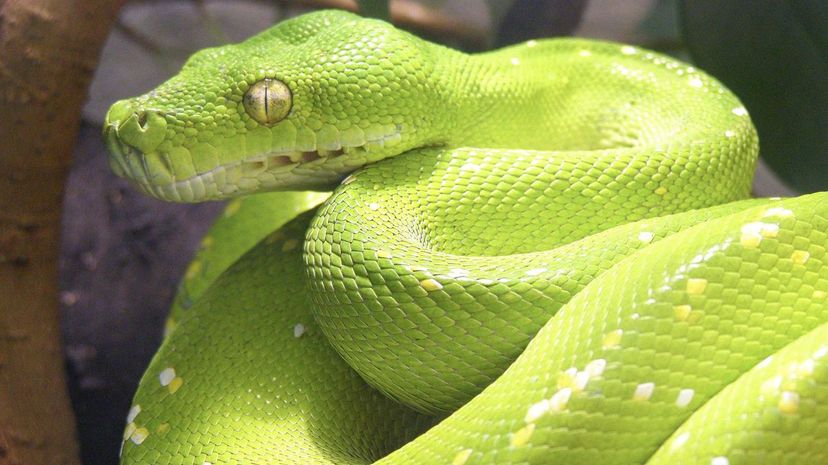
About This Quiz
With over 3,600 species of snake in the world, is it possible there's anyone anywhere who could actually identify them all? Anything's possible, but let's say it's highly unlikely. Still, to be a snake expert doesn't mean you have to know every single one on sight. You could probably consider yourself an expert knowing only a fraction of that number. But you really do have to know them: your vipers and your asps, your boas and your cobras. You'd have to be able to tell an arboreal snake from a terrestrial snake, a sea snake from a desert snake. You'd definitely have to know which kinds are venomous and which kinds are generally docile and easy for a human to handle without risking their safety. That's if you consider yourself any kind of expert.
Now we have no interest in making you identify 3,600 different species of snake. We'd be here for days! But if you figure you have some skill at identifying snakes, then no doubt you'd be able to get a few from this quiz correct. But are you such an expert you could get every single one? Only one way to find out! Take the quiz and see what you can do.
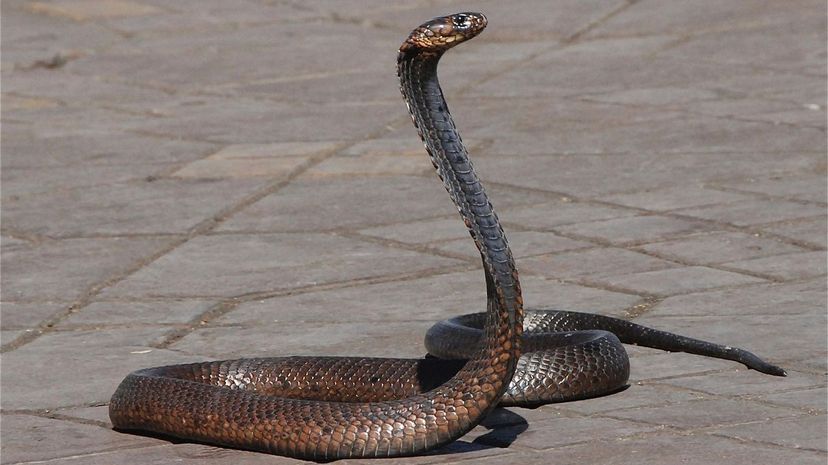
The Egyptian cobra is often just called an asp to keep things simple. Roman historian Velleius labeled this as the snake that poisoned Queen Cleopatra. Some say it was a cobra, but apparently a cobra would have been too large given eyewitness testimony.
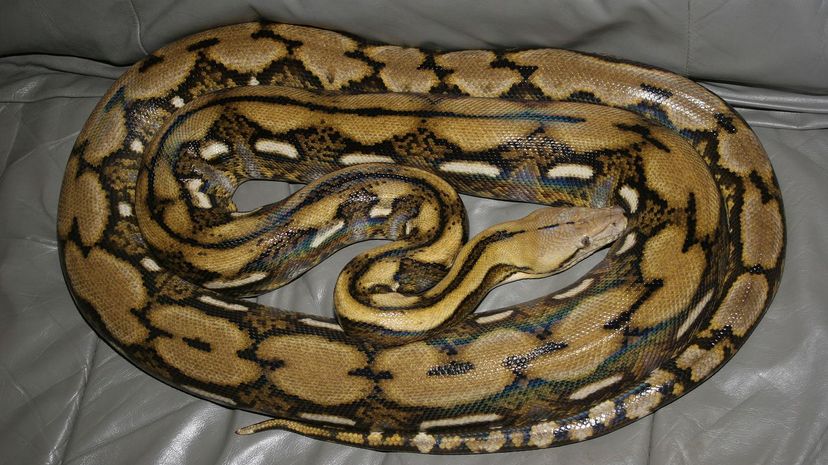
Reticulated pythons come from Asia and can routinely reach lengths of 19 feet, with at least one exceeding 22 feet. Though they are not poisonous, they are constrictors. Thanks to their size, they are capable of killing (and in some cases, eating) human beings.
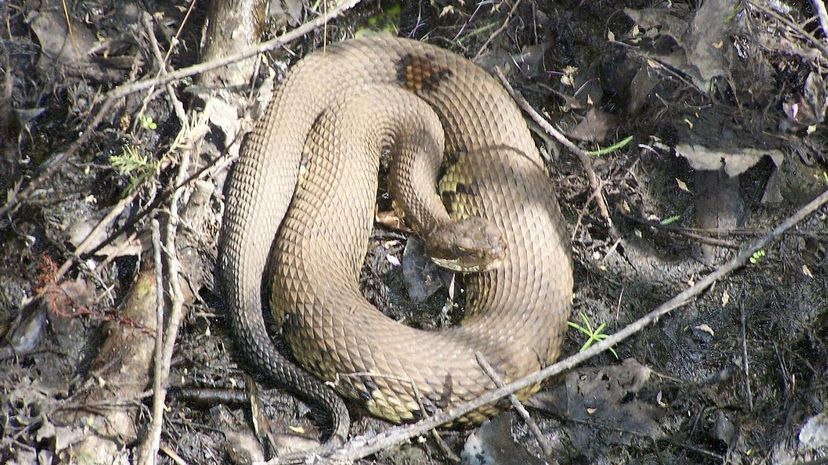
The cottonmouth snake is an aggressive and venomous species that causes a bite both painful and potentially deadly. It gets its name from its habit of opening its mouth incredibly wide when threatened, showing off a bright, cotton-white interior.
Advertisement
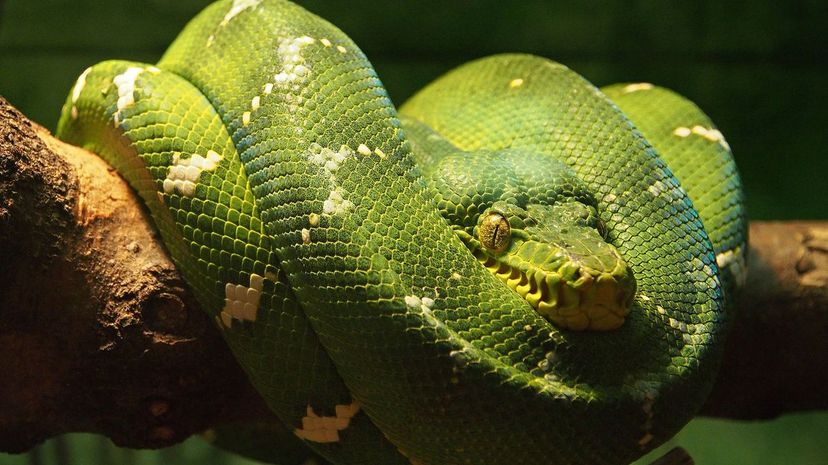
Emerald tree boas are easily recognizable for their incredibly vivid green coloration. They have incredibly slow metabolisms even for snakes and will often go months between feedings.
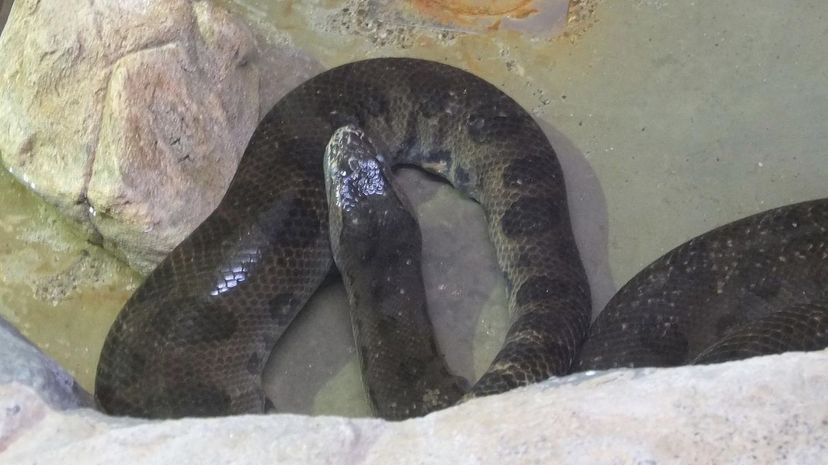
Green anacondas are absolutely massive snakes. They are the heaviest species and one of the longest as well. Green anacondas will grow to lengths of 16 or 17 feet while the heaviest on record weighed over 200 pounds.
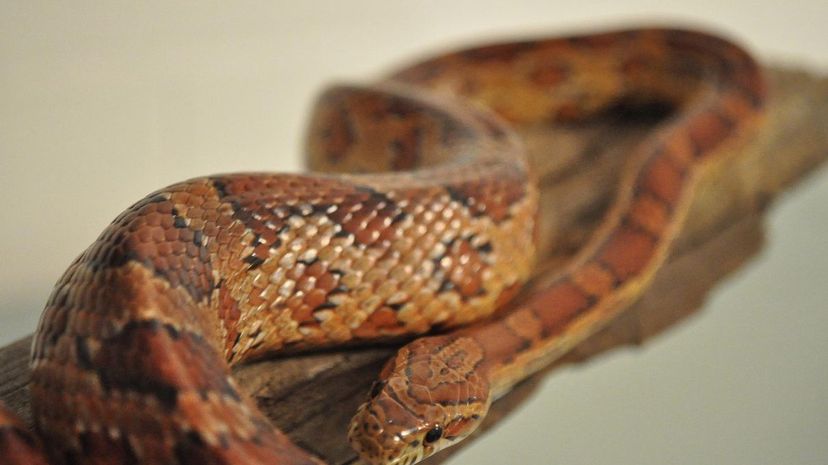
Corn snakes are sadly often mistaken for copperheads in the wild and meet a tragic end as a result. The difference is that corn snakes are quite docile and not venomous. Their ability to control the pest population makes them quite beneficial.
Advertisement
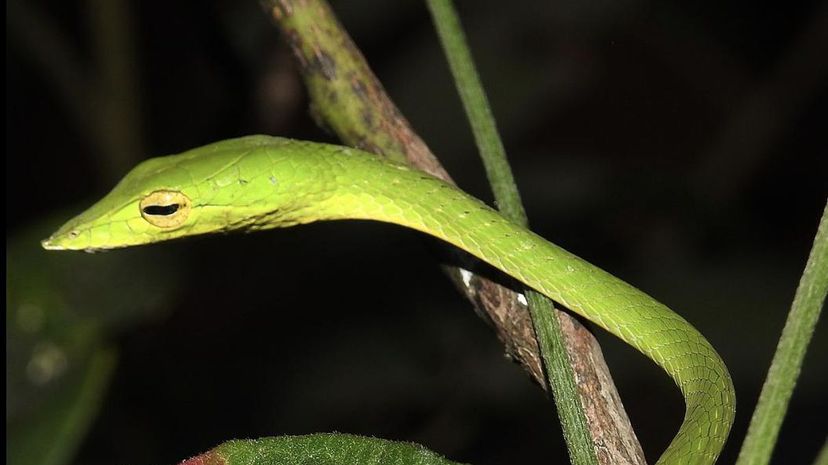
Green snakes are protected by law in several states even though they're not technically endangered. In Wyoming, Nebraska, and Colorado it's illegal for anyone to collect the snakes commercially or for individual collections.
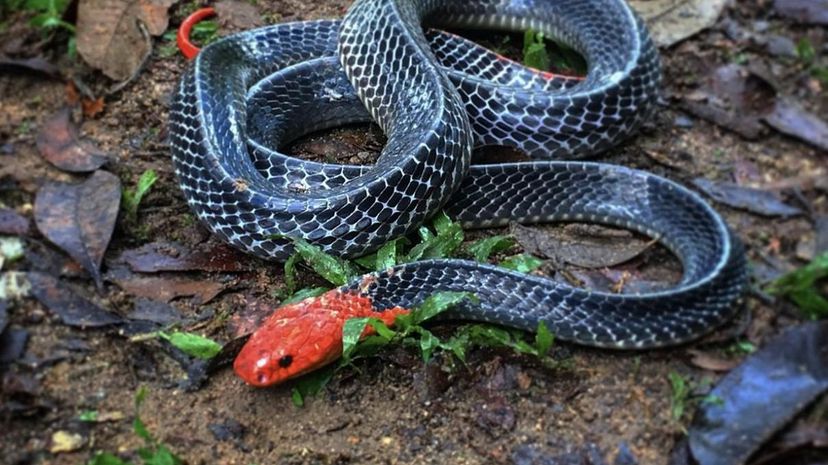
Few snakes are as visually striking as a red-headed krait. Their name isn't hyperbolic in any way; these snakes have dark black bodies contrasted with remarkably bright red heads.
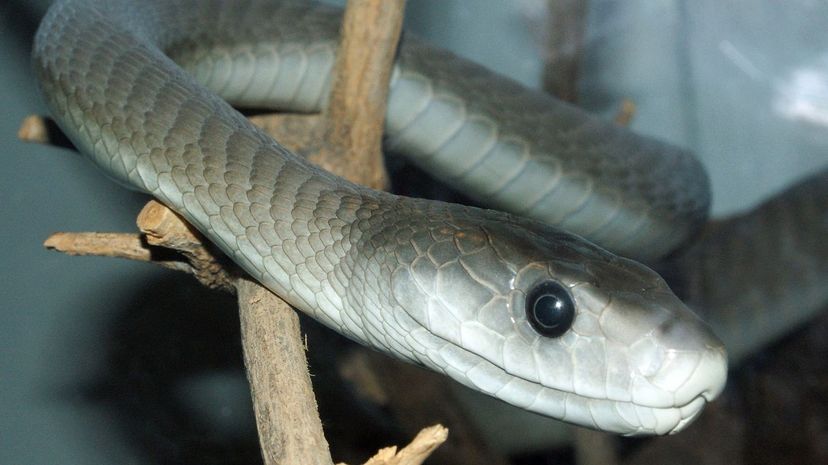
The black mamba is one of the deadliest snakes in the world, and not just due to its highly potent venom. The mamba is also incredibly fast and will frequently strike when provoked (and sometimes when not provoked at all).
Advertisement
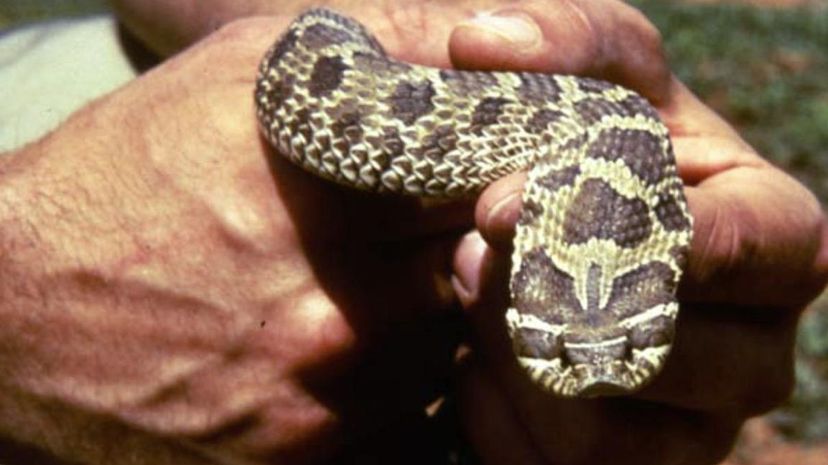
The western hognose snake gets its name from a little scale that grows at the end of its snout. The scale rises up, making it look like it has an upturned snout, not unlike a pig.
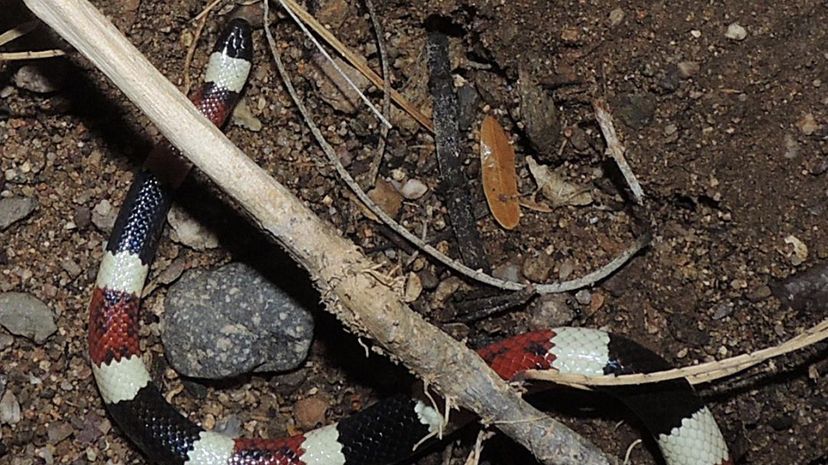
The bold red, black and yellow color patterns of the coral snake make them very easy to pick out of a crowd, though you might want to avoid them. They're venomous and they also engage in something called "cloacal popping" which is a very polite way to say they fart when threatened.
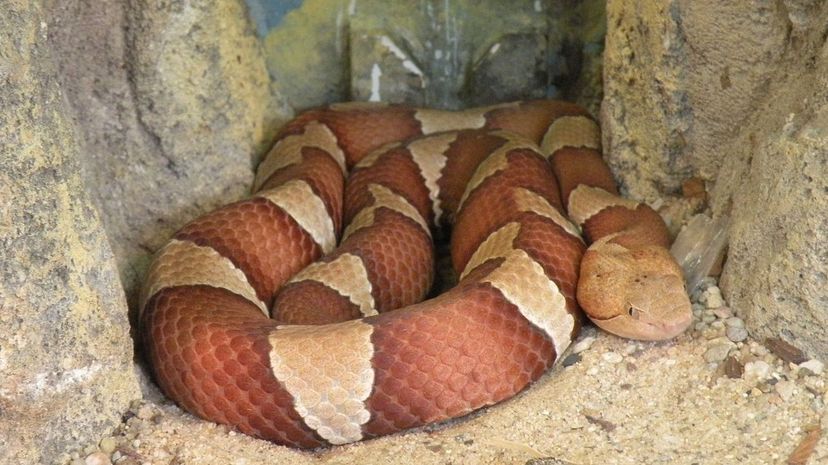
American copperheads are pit vipers that can be found all over the United States. They aren't typically aggressive. However, because they tend to freeze when startled rather than fleeing, many bites will occur simply due to people not noticing them.
Advertisement
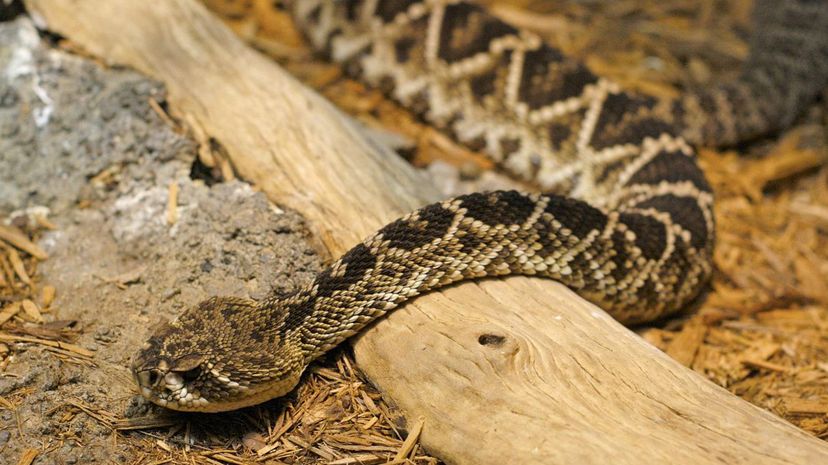
Eastern diamondback rattlesnakes are considered the most venomous snakes in North America. They are the largest rattler species but, despite all of that, they're not known for being overly aggressive. Of course, if you hear the warning rattle, it's a good indication that you should back off.
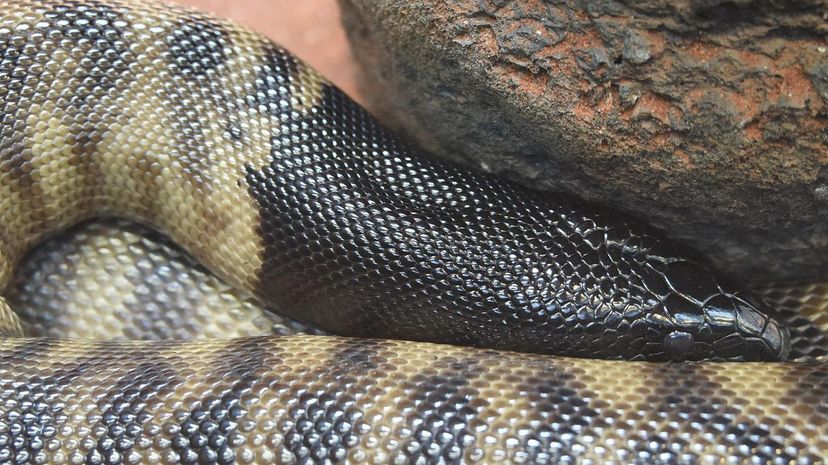
Black-headed pythons live in dry, desert areas and are non-venomous. When they're backed into a corner, they're surprisingly chill as far as snakes go and will often strike with a closed mouth.
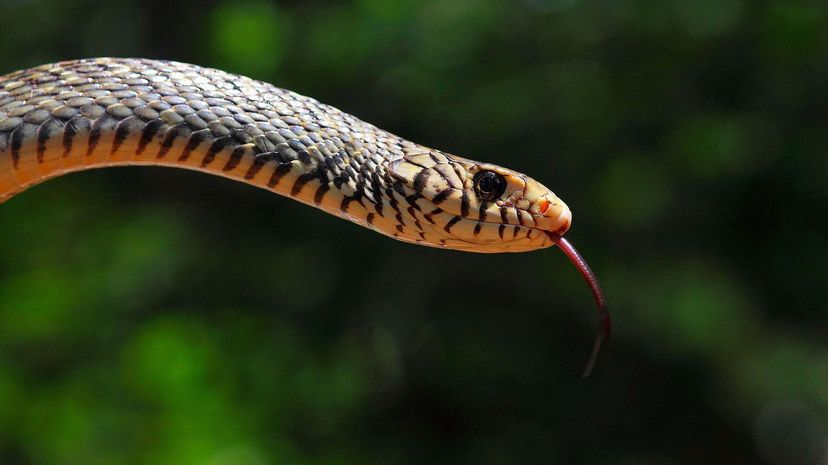
The king cobra is fairly easy to recognize thanks to its massive size and distinctive hood. The hood flares up when the snake is threatened, but its the length, up to 13 feet, and in at least one case over 19 feet, that is most dramatic.
Advertisement
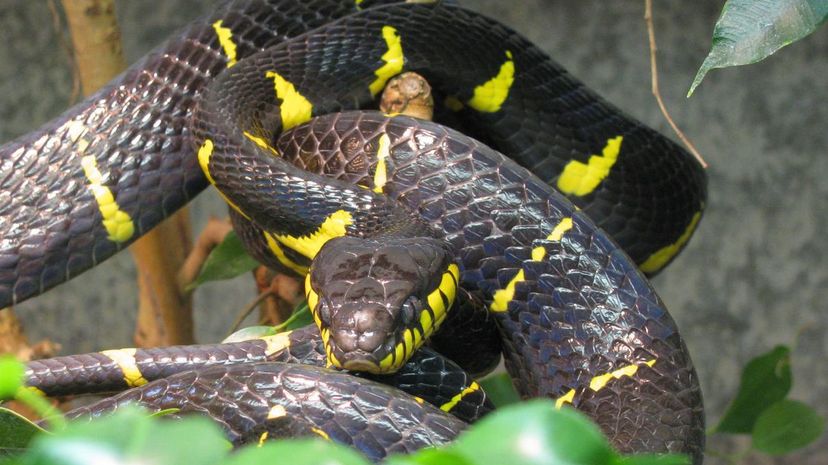
The gold-ringed cat snake is mildly venomous and quite easily recognizable thanks to its namesake bands of golden yellow scales. Even though the venom of the snake is mild, they also get a little jittery when people try to handle them, so bites are not uncommon and result in painful swelling.
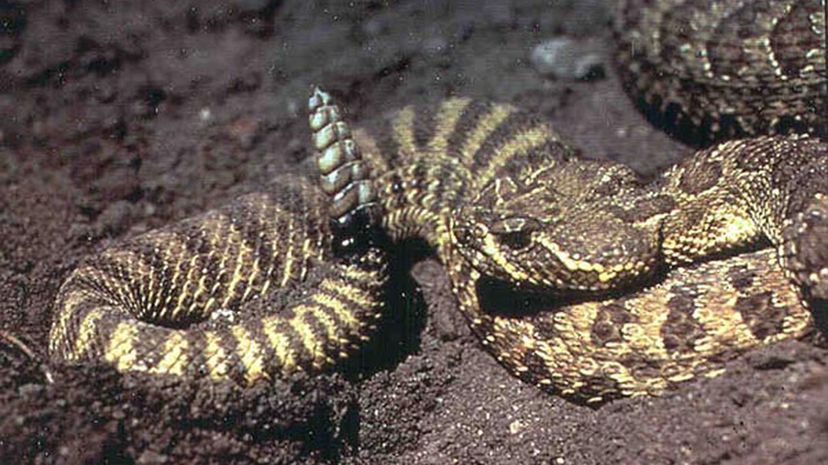
Sidewinders are rattlesnakes but don't have venom quite as potent as other rattlesnakes. That isn't to say a sidewinder bite is a walk in the park. It can cause severe pain, swelling, nausea, dizziness, chills and more.
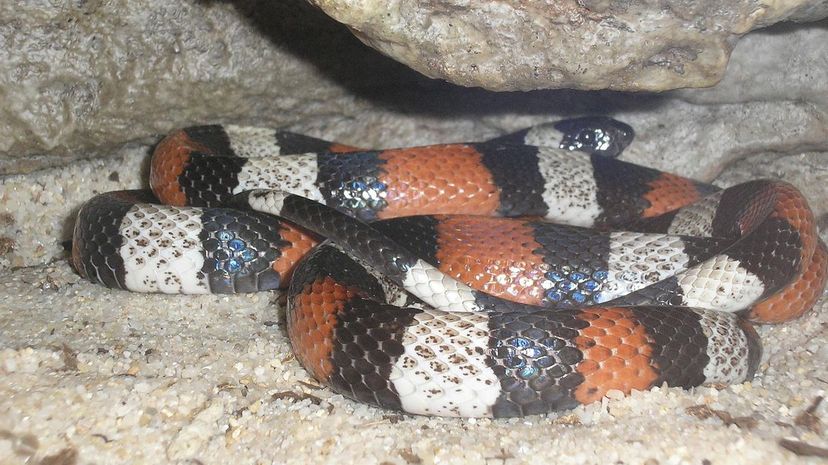
Milk snakes got their name from a myth about their behavior. People used to believe milk snakes would sneak up to cows and suck the milk from their udders. A snake doesn't have the ability to do that, mind you, so it's not true at all.
Advertisement
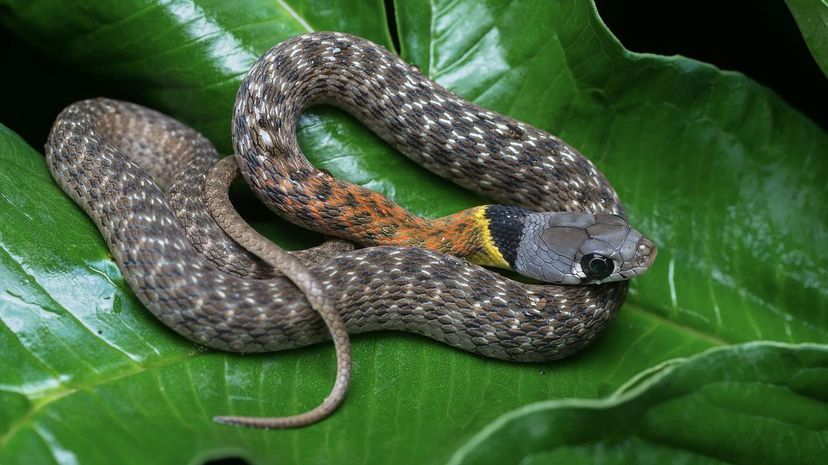
The red-necked keelback can envenomate when it bites, but it doesn't do so in a way common to snakes. Rather than inject venom with fangs, venom mixes with their saliva and will simply ooze into bite wounds.
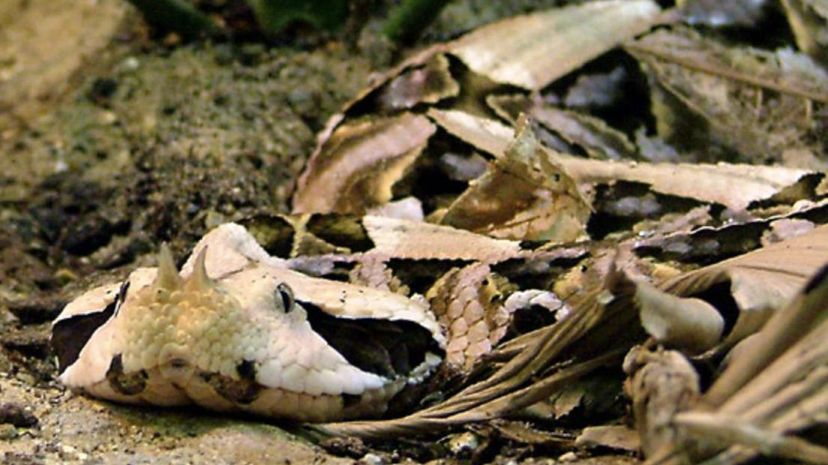
Gaboon vipers not only have the longest fangs of any snake species, but they also have the highest venom yield of any snake as well. That said, gaboons are not known to be particularly aggressive, so bites are not all that common.
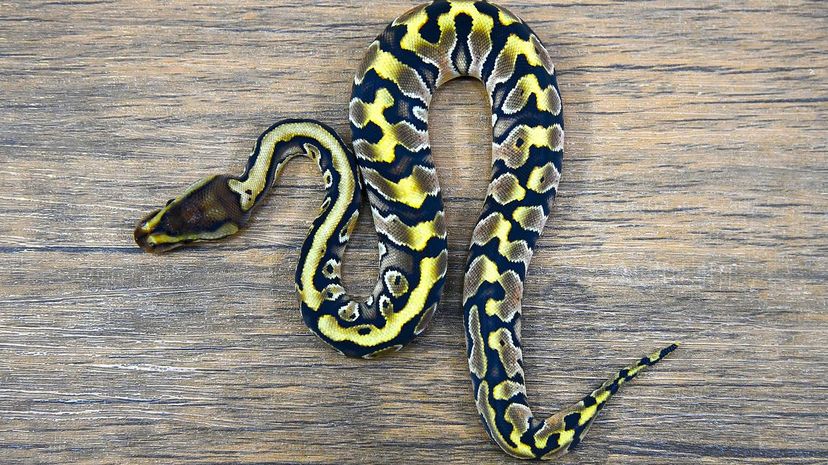
Ball pythons are the smallest pythons and tend to be extremely docile, which is why they make such good pets. The name "ball" python comes from the snake's tendency to curl up in a ball when they're frightened.
Advertisement
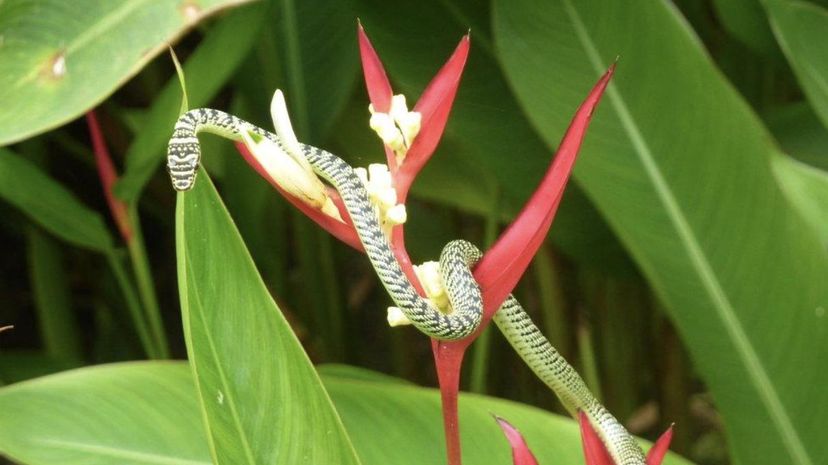
Golden tree snakes are often called flying snakes thanks to the fact they have the curious ability to glide from branch to branch. It is able to suck in its abdomen and shape its body like a long, thin wing. They can glide distances of over 300 feet.
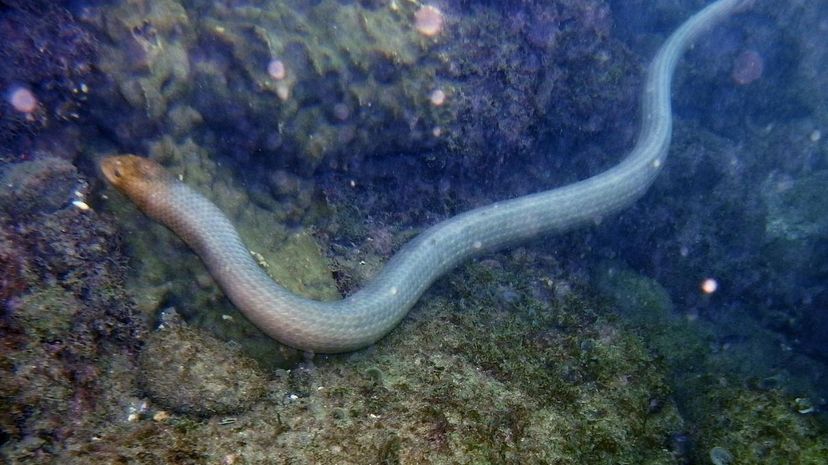
Olive sea snakes live among coral reefs and are highly venomous. Unique among most snakes, the olive sea snake has photoreceptors in its tail so that when it's hiding in the coral, it will know if its tail is sticking out where it can be seen.
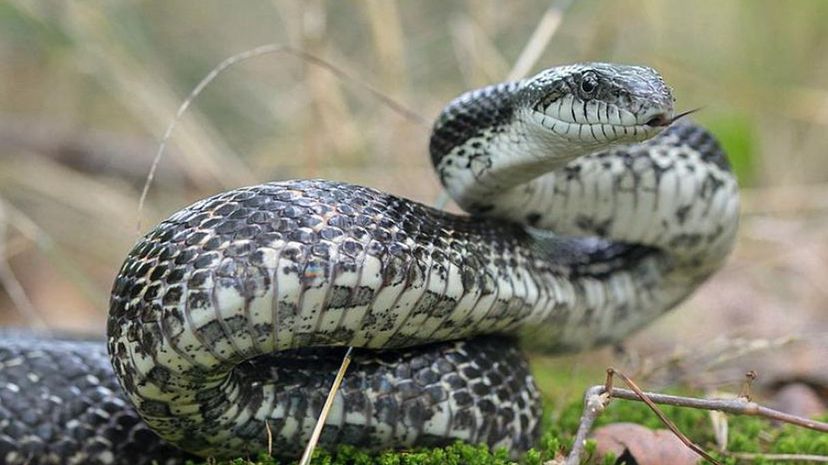
Gray ratsnakes have a number of clever defense mechanisms. They can play dead, freezing their bodies in crooked poses, as well as rattle their tail against surfaces to make a warning buzz. And most effective may be the way they release a bit of nasty smelling goo from their back end.
Advertisement
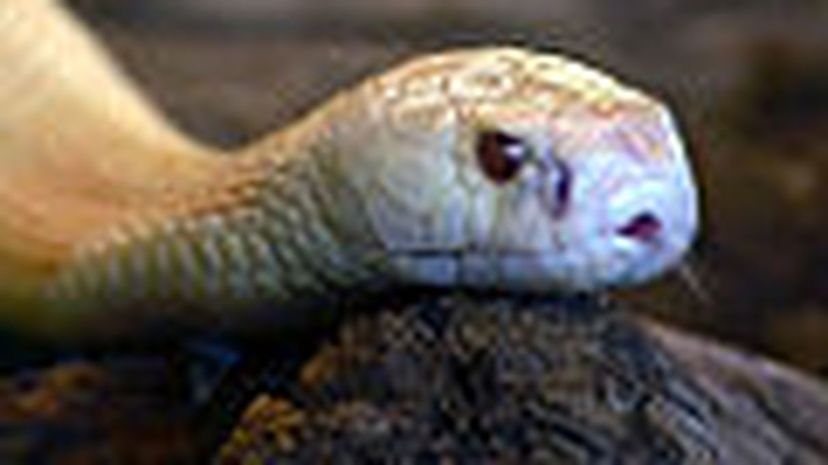
The monocled cobra is a highly venomous snake with fangs that have been specially adapted for spitting venom. Some cobras are able to spit venom distances of over six feet with remarkable accuracy. They tend to aim for the eyes to blind their prey.
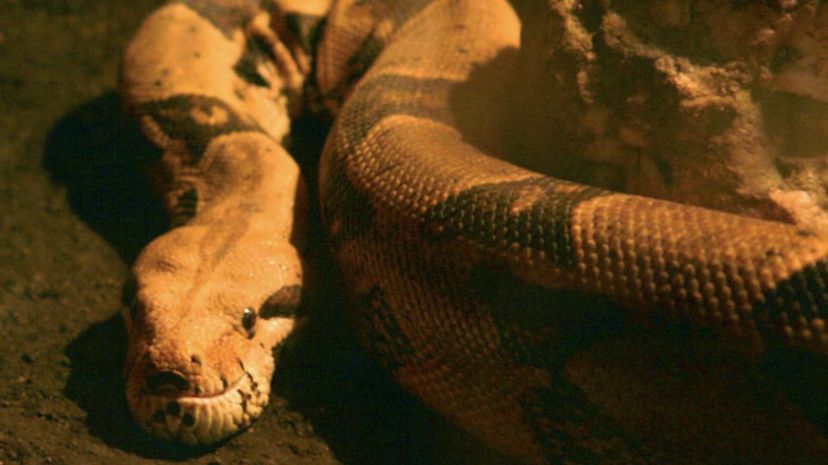
Boa constrictors are some of the most well-known snakes in the world. In fairness, many types of boas can be called boa constrictors since they do constrict, but they are also a distinct breed amongst all boas as well.
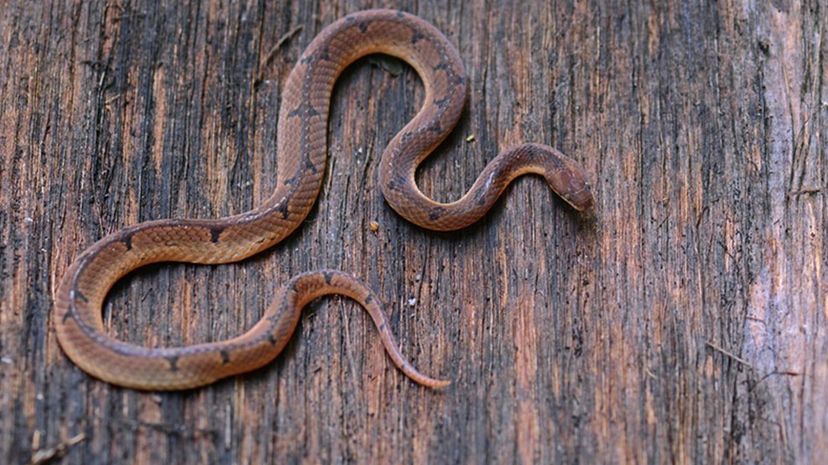
The western ground snake can be found throughout the Southwestern United States. You're not likely to find one of these snakes unless you go hunting through ditches at night.
Advertisement
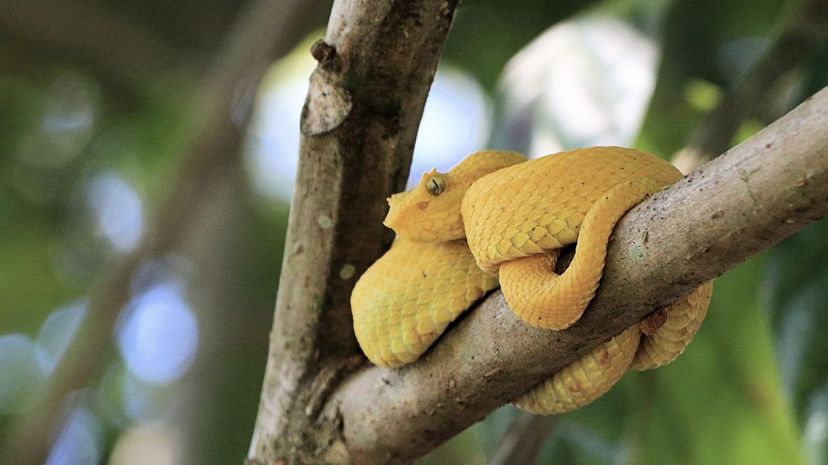
Eyelash vipers are oddly popular as exotic pets despite the fact they're venomous and highly dangerous. Thanks to their unusual appearance resulting from the small horns above its eyes that resemble eyelashes, people want them as pets.
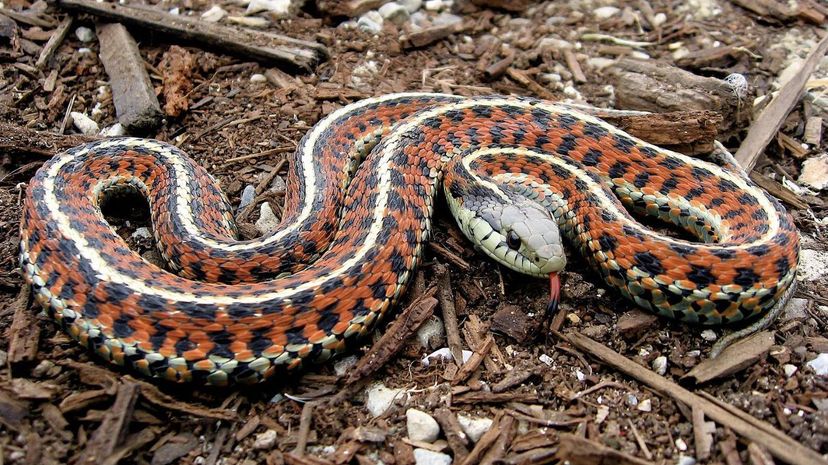
The common garter snake is one of the most common snakes in all of North America. They're small and basically harmless and range from Canada down to parts of South America.
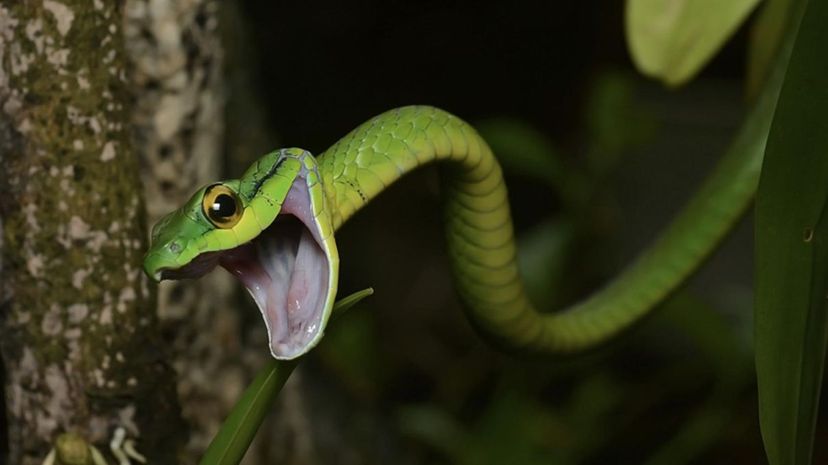
Parrot snakes can be found in Central and South America. Even though they're very thin, they can grow to lengths of over 5 feet. They're fairly easy to recognize thanks to their bright coloration, large eyes, and an unusually large mouth.
Advertisement
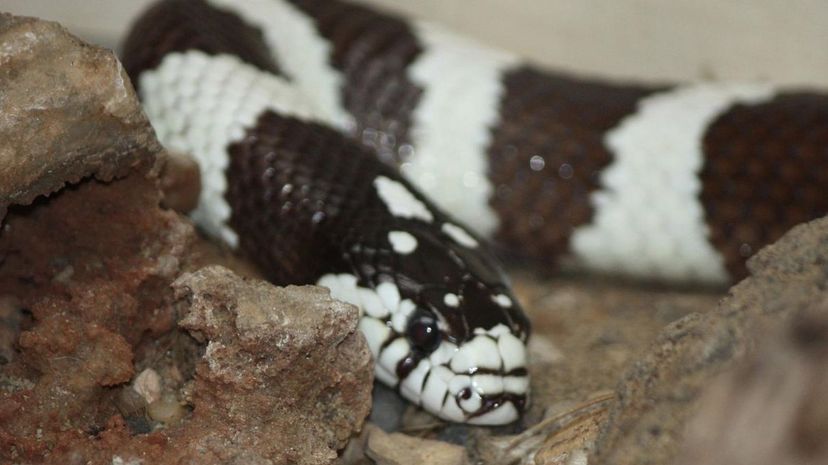
California kingsnakes make for great pets as they are typically not very aggressive, and they aren't venomous. If provoked, they will bite, though it's not generally a painful affair. They're also highly resistant to the venom of other snakes, which allows them to attack and eat things like rattlesnakes.
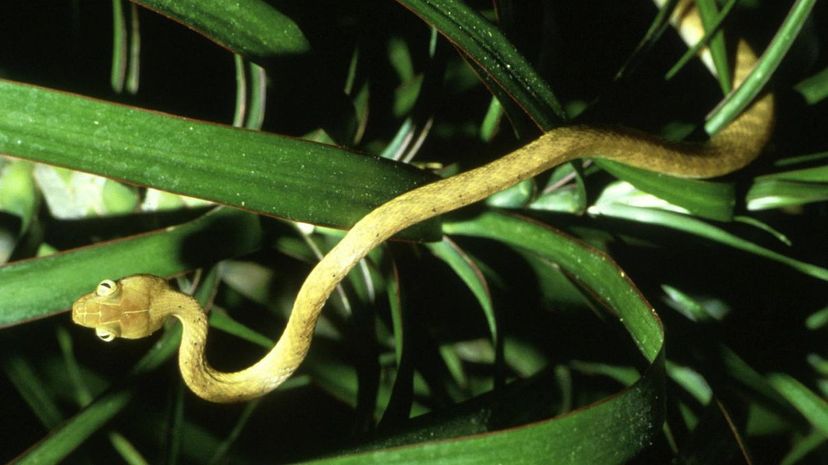
Brown tree snakes are native to Australia, Indonesia and Papua New Guinea. They were accidentally introduced to the island of Guam, where they bred prolifically and managed to exterminate much of the local bird population.
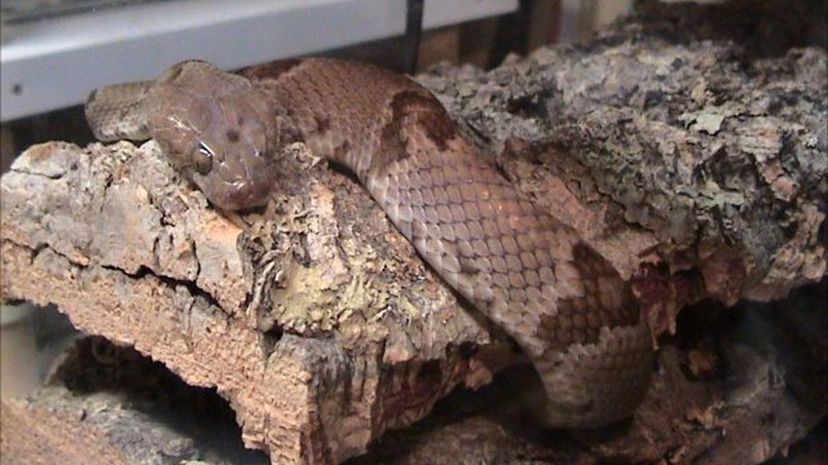
The Texas lyre snake gets its name from the V-shaped marking on the back of its head, which resembles a lyre. Of course, not a lot of people even know what a lyre is these days, since it was a musical instrument quite a while ago that almost no one uses anymore.
Advertisement
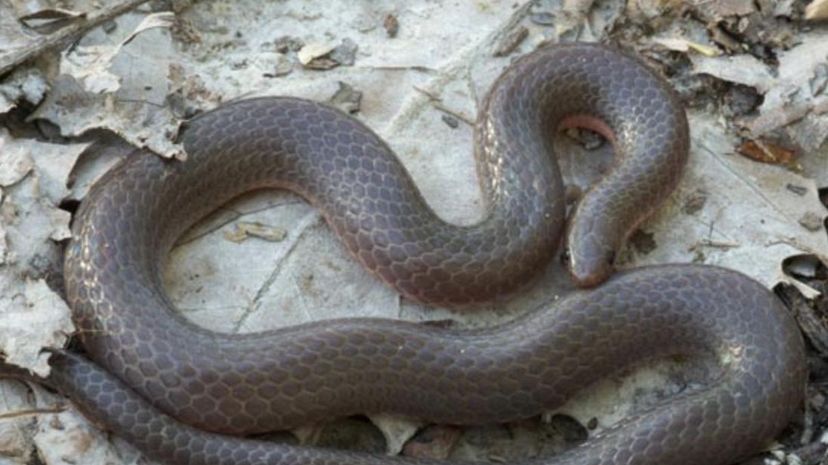
Worm snakes are a species of blind snake that got their name for the obvious resemblance they bear to earthworms. They're eyeless and burrow underground like earthworms as well, and likely get mistaken for them very often.
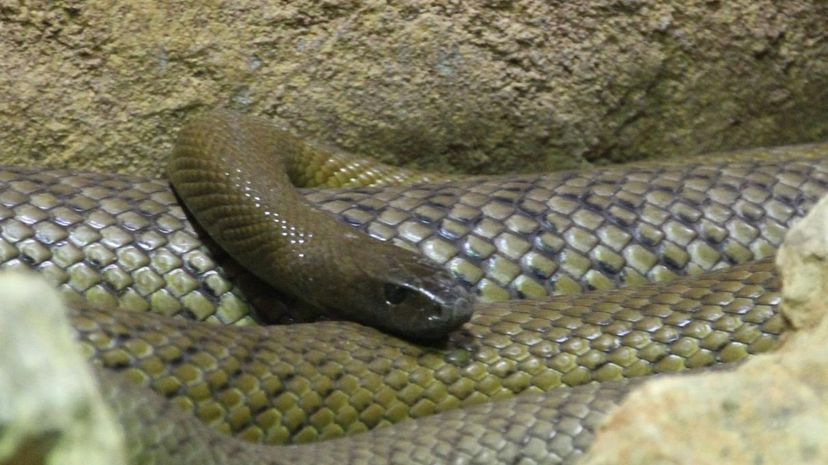
The inland taipan is not just a deadly snake, it's a snake designed to be exceedingly deadly. More than many reptiles, the taipan is specifically suited for killing mammals, and its venom is adapted to kill warm-blooded things more efficiently.
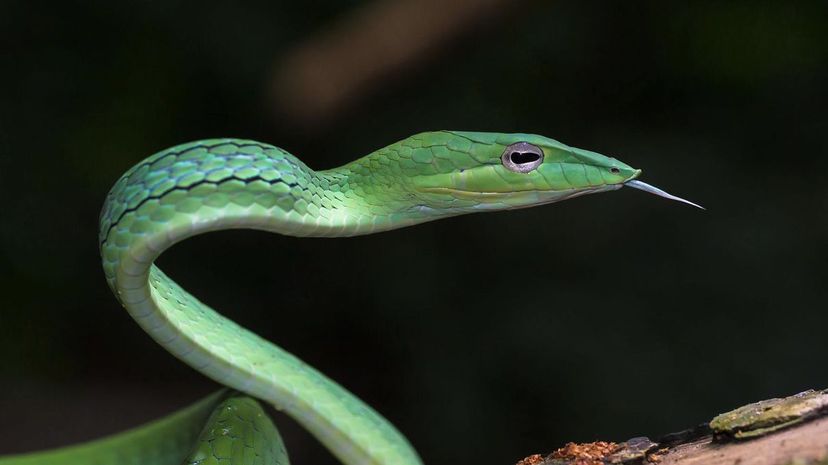
Asian vine snakes can grow to be nearly 5 feet in length and are bright green with pointed, triangular heads. Most unique are the eyes of the snake, which, unlike nearly any other reptile, have pupils that are oddly keyhole-shaped.
Advertisement
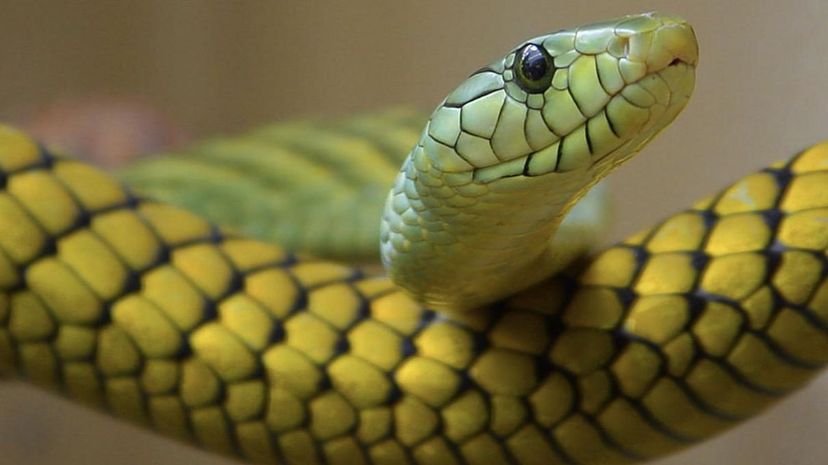
A boomslang is a highly venomous and brightly colored snake from sub-Saharan Africa. It can open its jaws to an immense 170 degrees, which allows it to embed its large fangs into prey and inject a remarkably potent hemotoxin, which causes excessive bleeding.
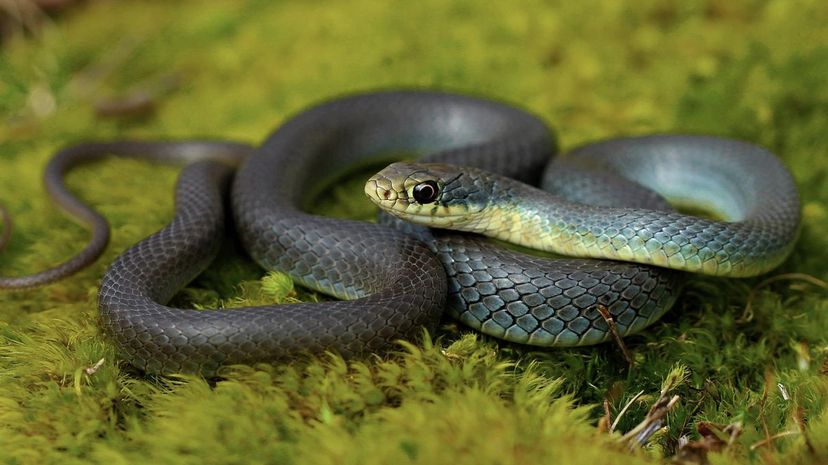
Eastern racers are fairly accurately named snakes. They're found east of the Rocky Mountains, and they're also quite fast when they're in danger, which is where the racer part of the name comes from. If you do catch one, they may not be venomous, but they do bite.
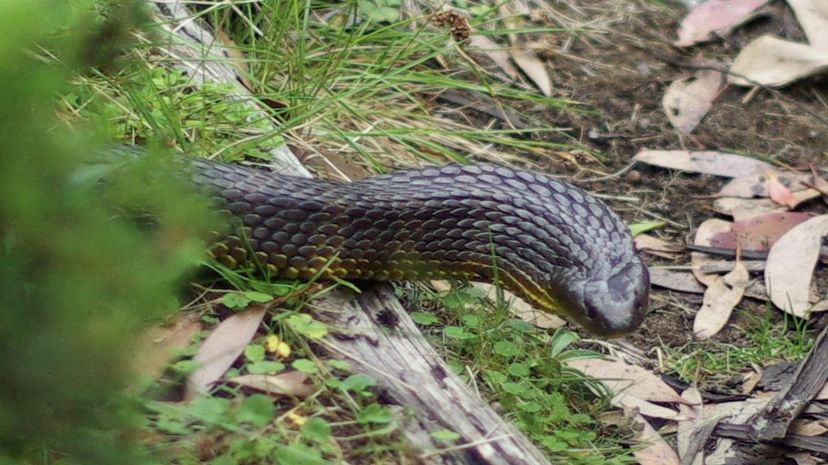
Tiger snakes can be found throughout Mexico and South America. They look very distinctive with a pattern that alternates yellow and black, hence the tiger snake name. They can also grow to a fairly considerable length of nearly 9 feet.
Advertisement
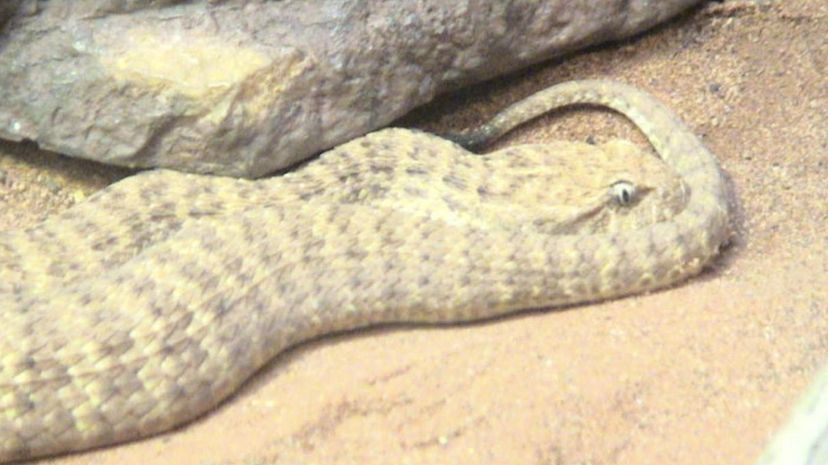
Death adders didn't get their name for no reason. They're some of the most venomous snakes on Earth. Oddly enough, the name of this snake in Australia was originally "deaf" adder because the snakes stand their ground and refuse to flee when approached, which made some think they couldn't hear.